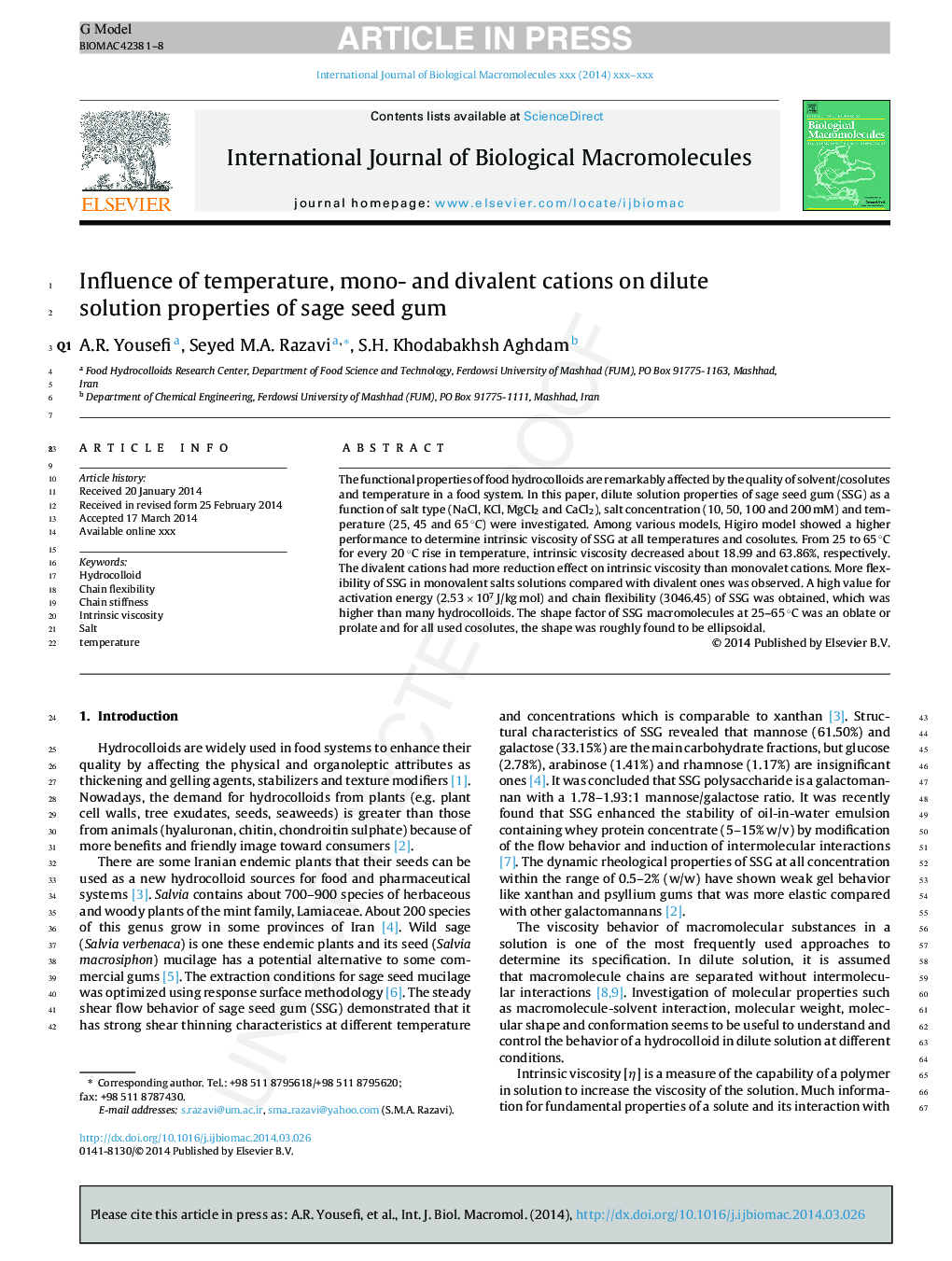| Article ID | Journal | Published Year | Pages | File Type |
|---|---|---|---|---|
| 8333033 | International Journal of Biological Macromolecules | 2014 | 8 Pages |
Abstract
The functional properties of food hydrocolloids are remarkably affected by the quality of solvent/cosolutes and temperature in a food system. In this paper, dilute solution properties of sage seed gum (SSG) as a function of salt type (NaCl, KCl, MgCl2 and CaCl2), salt concentration (10, 50, 100 and 200 mM) and temperature (25, 45 and 65 °C) were investigated. Among various models, Higiro model showed a higher performance to determine intrinsic viscosity of SSG at all temperatures and cosolutes. From 25 to 65 °C for every 20 °C rise in temperature, intrinsic viscosity decreased about 18.99 and 63.86%, respectively. The divalent cations had more reduction effect on intrinsic viscosity than monovalet cations. More flexibility of SSG in monovalent salts solutions compared with divalent ones was observed. A high value for activation energy (2.53 Ã 107 J/kg mol) and chain flexibility (3046.45) of SSG was obtained, which was higher than many hydrocolloids. The shape factor of SSG macromolecules at 25-65 °C was an oblate or prolate and for all used cosolutes, the shape was roughly found to be ellipsoidal.
Related Topics
Life Sciences
Biochemistry, Genetics and Molecular Biology
Biochemistry
Authors
A.R. Yousefi, Seyed M.A. Razavi, S.H. Khodabakhsh Aghdam,
